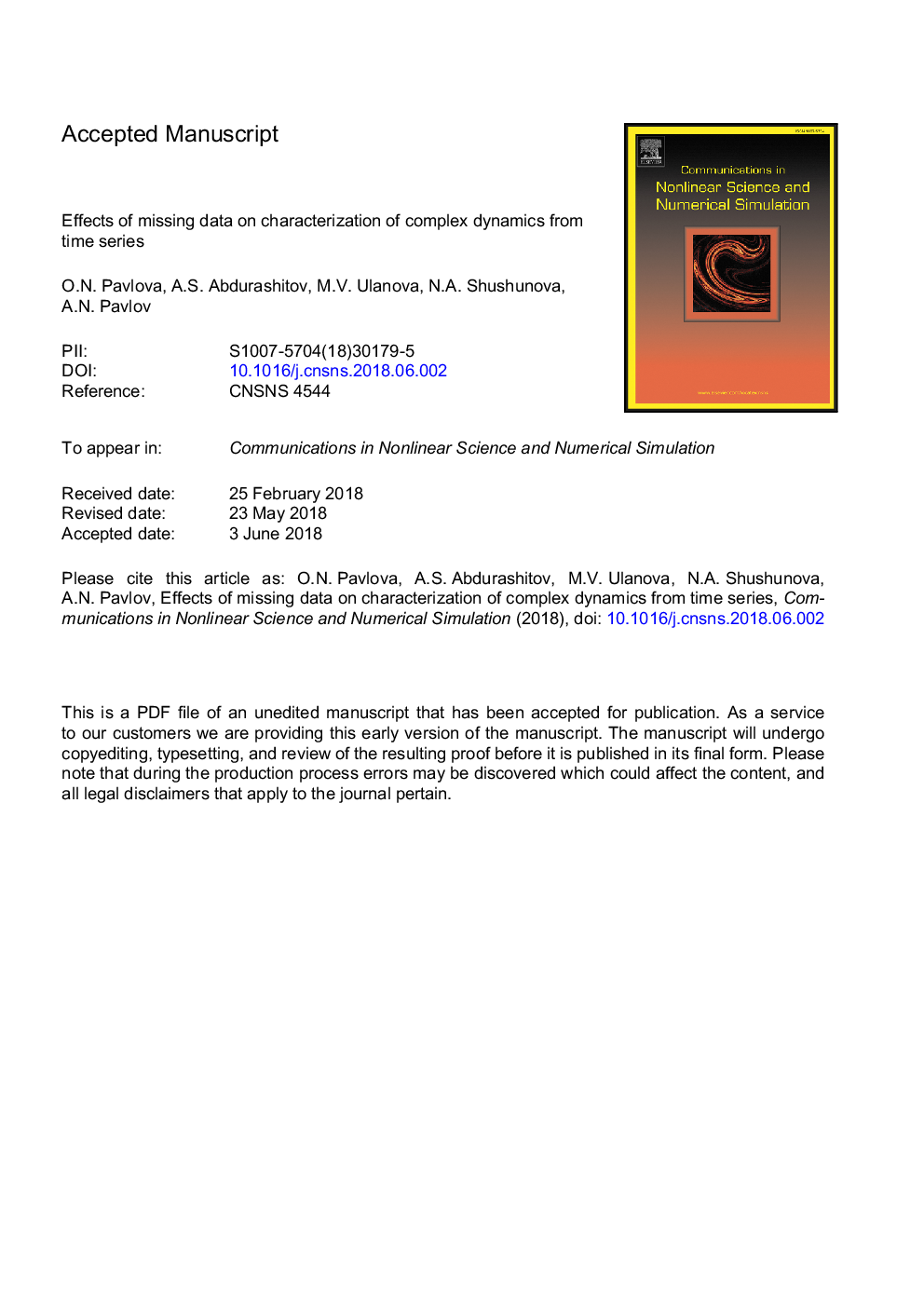| Article ID | Journal | Published Year | Pages | File Type |
|---|---|---|---|---|
| 7154410 | Communications in Nonlinear Science and Numerical Simulation | 2019 | 13 Pages |
Abstract
Experimental time series often contain bad segments that arise from artifacts, changes in experimental conditions, or failures in recording equipment. Such segments are usually removed from the time series during the preprocessing stage that can alter the correlation or other properties of the signals. Aiming to reveal how the effects of data loss depend on the amount of missing data, we consider here different regimes of regular and chaotic dynamics with excluded segments. Using several data processing techniques, namely, the wavelet-transform modulus maxima (WTMM) approach, the detrended fluctuation analysis (DFA) and the multiresolution analysis based on the discrete wavelet-transform (DWT), we demonstrate essentially different effects of the missing data for positively correlated time series and anti-correlated signals. All the techniques show that positively correlated time series are significantly less sensitive to excluded segments and enable the characterization of the object's properties even under the condition of an extreme data loss. We verify the ability of characterizing physiological systems using an example of the cerebrovascular dynamics based on time series with missing data. A weak sensitivity of the cerebral blood flow to data loss is an important issue for diagnostic-related studies.
Related Topics
Physical Sciences and Engineering
Engineering
Mechanical Engineering
Authors
O.N. Pavlova, A.S. Abdurashitov, M.V. Ulanova, N.A. Shushunova, A.N. Pavlov,
